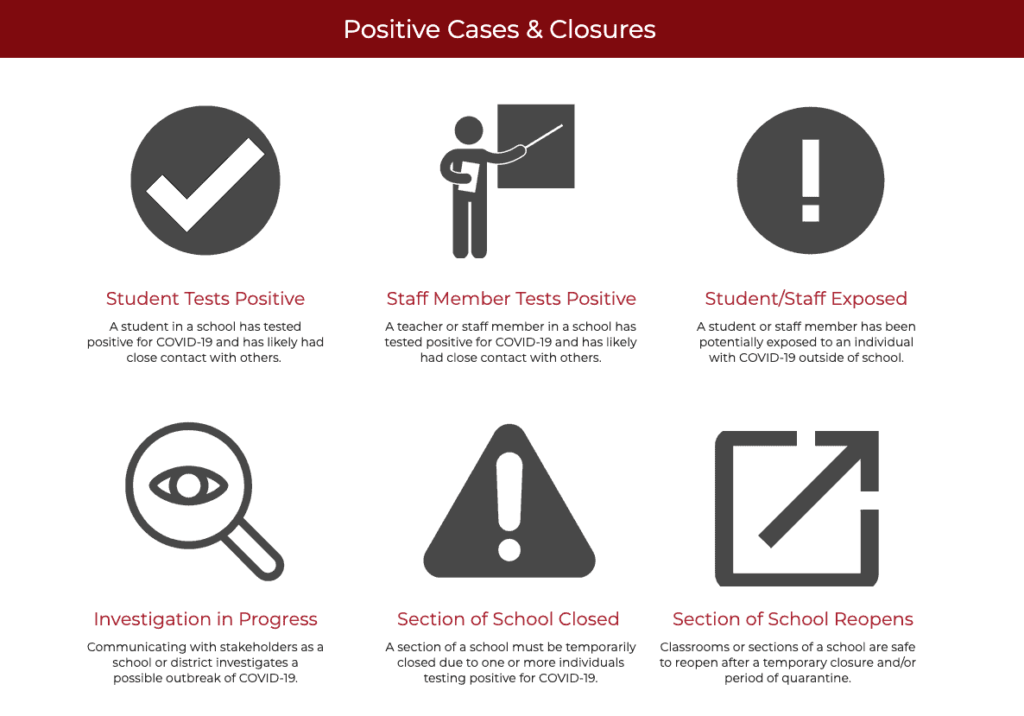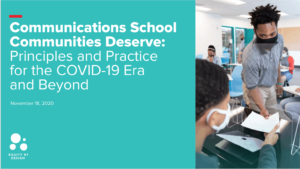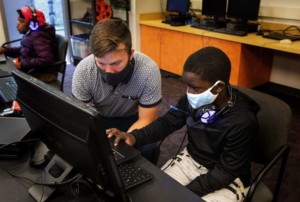#EngageEquitably Helps Education Leaders Communicate More Effectively with Families and Communities

By: Eric Tucker, Liam Goldrick and Steve Bailey
The challenges of the COVID-19 pandemic, combined with underlying inequities throughout our society and across school communities, have underscored how important it is for education leaders to use regular, proactive, and transparent communications with students, families, staff, and local communities.
Brooklyn Laboratory Charter Schools (LAB) and national school communications firm the Donovan Group have created a new series of equity-focused communications resources to help school and district leaders nationally communicate more effectively with diverse stakeholders during these challenging times.
#EngageEquitably includes templates for emails to families and staff, website language, phone and robocall scripts, video scripts, and news releases. They address a variety of COVID-19 situations, including positive cases, health and prevention efforts, schedule changes, shifts in schools’ instructional models, and how to access school meals.
These resources build on the EquityByDesign initiative’s broader work to promote a healthy, safe, and equitable school year.
Each communications resource is tailor-made to different audiences and focused on specific situations, such as closing a classroom or section of a school and moving from a virtual to in-person learning model. It also includes examples of communications that address students with special learning needs. Although remote learning has been stressful for many families and students, it has been particularly difficult for students with disabilities and those who have Individual Education Plans (IEPs) or 504 Plans.
The resources are intended to guide the communications efforts of schools and districts. The specific strategies and messages they use will depend on factors like their reopening plans, guidance they receive from public health officials, and the status of COVID-19 in their schools and community. LAB and the Donovan Group will continue to add to these resources as the school year progresses.
Education leaders can access free resources, guidance, and templates through #EngageEquitably: www.EngageEquitably.org.
A number of organizations provided recommendations and suggestions that support this effort, including the Parabola Project, a partnership between Ariadne Labs (a joint center for health systems innovation at Brigham & Women’s Hospital and the Harvard T.H. Chan School of Public Health), and The Learning Accelerator, a national nonprofit that is working to make the “potential” possible and practical for every teacher and learner.
“Parents, guardians, and other stakeholders too often receive conflicting and confusing information about the pandemic, decision-making around closure and reopening, and the reasoning behind the message,” said Beth Rabbitt, chief executive officer of The Learning Accelerator (TLA) and co-founder of the Parabola Project. “This toolkit gives schools a starting point to establish strong, consistent, public health-informed communications processes.”
Another partner is the Educating All Learners Alliance (EALA), which includes the National Center for Learning Disabilities (NCLD), National Center for Special Education in Charter Schools (NCSECS), Digital Promise’ Learner Variability Project and InnovateEDU.
“As their families, students, and staff deal with the many stresses and challenges of the COVID-19 pandemic, schools and districts must engage in clear and proactive communications,,” said Erin Mote, founding partner of the Educating All Learners Alliance (EALA) and executive director of InnovateEDU. “Clear, responsive communications is an integral way to cultivate the kind of trust, inclusion, and equity we need during this public health crisis.”
The transitions between virtual, hybrid, and in-person school are particularly challenging for students with disabilities, who need tailored communications about how these changes will affect them. “Families of students with learning and attention issues (and their students) often feel the challenges associated with COVID-19 resurgence acutely,” said Lindsay E. Jones, president and CEO of the National Center for Learning Disabilities. “School leaders must make decisions and communicate in a manner that best addresses the needs of students with disabilities and their families.”
Through this effort, we look to leverage our combined experiences to provide a helpful resource that school leaders and communication professionals can return to whenever they need it. Our hope is that these tools help education leaders do just that, while freeing up their time to do what they do best: Engage with and meet the needs of their students, families, staff, and communities.
For more, see:
- Preparing for a Healthy and Safe Return to School: Public School Facilities Planning in the Era of COVID-19
- Educating All Learners Alliance Launches Flagship Site, Shares Personas Educators Can Use to Understand Students’ Lived Experience During COVID-19
- Schools Need a Success Coach for Every Learner
- Preparing to Reopen: Six Principles That Put Equity at the Core
- To Reopen, America Needs Laboratory Schools
- How to Reopen Schools: A 10-Point Plan Putting Equity at the Center
- Reopening Schools: A Scheduling Map for Educators to Plan the Who, What, When, Where, and How of Learning this Fall
- The Front Porch: A New Approach to Support the Health, Safety, and Well-Being of Our School Communities
- Safeguarding Back to School: Preparation for a Healthy Return to School in Downtown Brooklyn
Liam Goldrick is a partner and associate with the Donovan Group, a national school communications firm.
Steve Bailey is a partner and senior associate with the Donovan Group, a national school communications firm.
Stay in-the-know with innovations in learning by signing up for the weekly Smart Update.
We know that educators and leaders have spent the last couple of months scrambling to meet the immediate needs of learners in their community. Thank you to each and every one of you for everything you’ve done to make the best out of this challenging situation. Now that the end of the school year is here, we’re shifting our Getting Through series from stories and advice to support remote learning or long term closures, to getting ready for the complex work of reopening schools this fall.
Interested in contributing to this campaign?
Email your stories and ideas to [email protected] or tweet using #GettingThrough to participate!





0 Comments
Leave a Comment
Your email address will not be published. All fields are required.